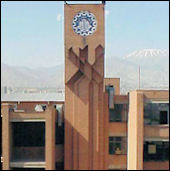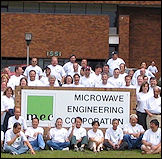 Clarence Darrow once said that a man who represents himself has a fool for a lawyer and an idiot for a client. And that seems to be aptly demonstrated by the antics of Londoner Guy Savage who is waging a pro se war against his extradition from the U.K. to the United States in connection with allegations that he smuggled gun parts out of the United States to his business in the United Kingdom without a license. These antics are richly detailed in a recent article in The Tennessean.
Clarence Darrow once said that a man who represents himself has a fool for a lawyer and an idiot for a client. And that seems to be aptly demonstrated by the antics of Londoner Guy Savage who is waging a pro se war against his extradition from the U.K. to the United States in connection with allegations that he smuggled gun parts out of the United States to his business in the United Kingdom without a license. These antics are richly detailed in a recent article in The Tennessean.
Employees of Savage’s U.S. operation pleaded guilty to charges that they violated the Arms Export Control Act in connection with the parts shipment scheme. Since then, Savage, who was arrested by British authorities, has been battling extradition, both in the U.K. and the U.S. A U.K. magistrate approved Savage’s extradition back in November. Meanwhile, Savage, who is appealing that order, has been hurling paper at his soon-to-be judge in the U.S. Although his argument that the U.S. lacks jurisdiction over him has some force, the same cannot be said for the $250 milliion invoice which he sent to the judge for payment and representing claimed losses to his business resulting from the prosecution. He also
claims that the United States, the Department of Justice and the U.S. District Court are “legal fictions.†In one document, Savage denies “that I am a person.â€
The “I am not a person” defense is a novel, albeit usually unsuccessful, defense premised on the defendant’s claim that he is actually a unicorn and that, since prosecutions of imaginary creatures are illegal, he must be acquitted.

 Posted by
Posted by  Category:
Category: 

 A California man has been indicted in connection with his attempt to export radiation hardened, space qualified chips to the People’s Republic of China without an export license. The
A California man has been indicted in connection with his attempt to export radiation hardened, space qualified chips to the People’s Republic of China without an export license. The 
 Rudolf Cheung, who is the head of the Research & Development department of
Rudolf Cheung, who is the head of the Research & Development department of  Law students always chuckle at forfeiture cases because they have the best names, such as United States v. 3,462 Cans of Tuna Fish or the like. It always seemed so unfair to those cans of tuna to have the entire juridical apparatus and force of the United States arrayed against them. Poor cans!
Law students always chuckle at forfeiture cases because they have the best names, such as United States v. 3,462 Cans of Tuna Fish or the like. It always seemed so unfair to those cans of tuna to have the entire juridical apparatus and force of the United States arrayed against them. Poor cans!

